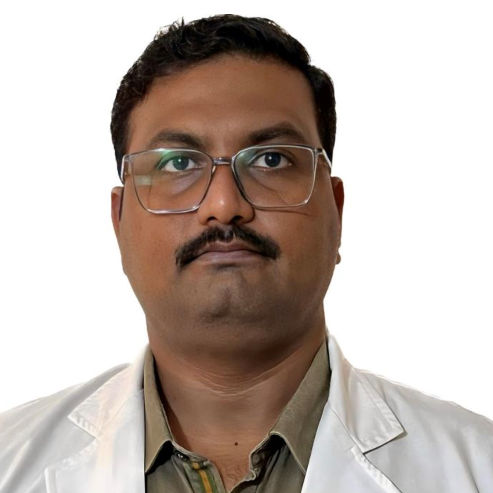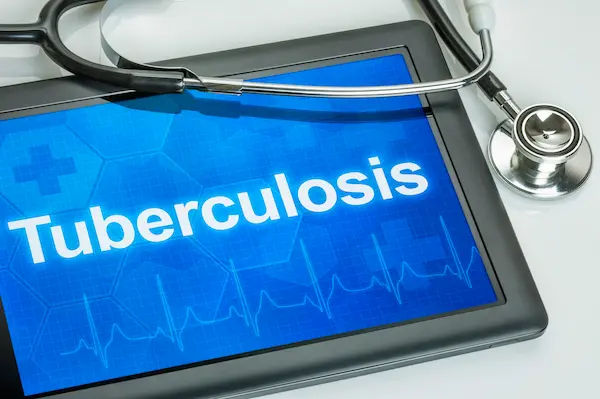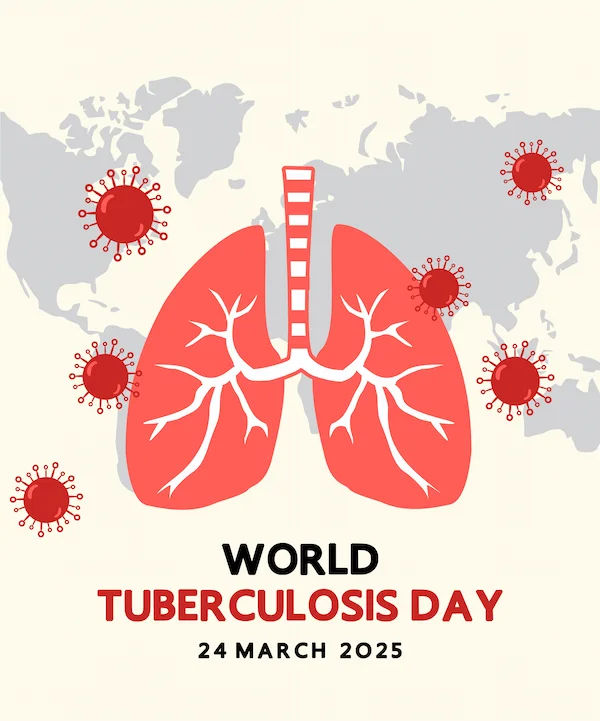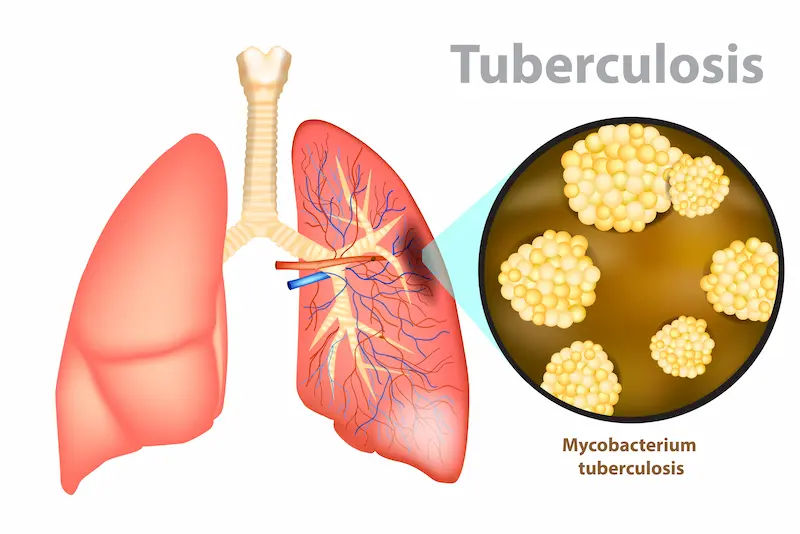The Future of TB Management: Shorter Treatments, Smarter Tech, and Hope
Discover the future of TB management with shorter treatments, smarter technology, and renewed hope. Learn how innovations are transforming care, improving outcomes, and supporting global efforts to end tuberculosis.

Written by Dr. Vasanthasree Nair
Reviewed by Dr. Dhankecha Mayank Dineshbhai MBBS
Last updated on 13th Jan, 2026

For decades, the management of tuberculosis (TB) has been a long, arduous journey for patients and a complex challenge for healthcare systems. The standard six-month drug course, while effective, is fraught with side effects and demands rigorous adherence, a significant hurdle for many. The rise of drug-resistant strains has made the battle even tougher. However, we are standing at the brink of a transformative era. The future of TB management is being reshaped by groundbreaking innovations that promise to make diagnosis faster, treatment shorter and more tolerable, and care more patient-centric than ever before. This article will guide you through the exciting advancements—from AI-powered diagnostics and all-oral drug regimens to digital health tools—that are paving the way for a more efficient and compassionate approach to conquering this ancient disease. We will explore how these changes aim to not only cure TB but also to restore quality of life faster and for more people.
Why We Need a New Approach to TB
Before diving into the future, it's crucial to understand why the current model of TB management needs an upgrade. The global fight against TB has been successful in saving millions of lives, but progress has been slow and uneven.
The Limitations of Current TB Management
The traditional approach relies heavily on sputum smear microscopy, a diagnostic method over a century old that misses many cases, especially in children and people with HIV. Treatment involves a lengthy course of multiple antibiotics, which can cause severe side effects like nausea, joint pain, and hepatitis. This often leads to patients discontinuing treatment prematurely, which is a primary driver of drug resistance. The requirement for directly observed therapy (DOT), where a healthcare worker watches the patient take every dose,, while ensuring adherence, can be stigmatizing and inconvenient.
The Growing Threat of Drug-Resistant TB (MDR-TB & XDR-TB)
Multidrug-resistant TB (MDR-TB) and extensively drug-resistant TB (XDR-TB) are man-made crises resulting from incomplete or incorrect treatment. Managing these forms of TB has been a nightmare. Until recently, treatment could last up to 24 months, involving daily painful injections and a cocktail of toxic drugs that often led to permanent side effects like deafness, with cure rates hovering around 50-60%. This grim reality underscores the urgent need for a better future management tb strategy that can effectively curb the spread of drug resistance.
Revolutionising Diagnosis: Faster, Smarter, and More Accessible
The first step to effective treatment is rapid and accurate diagnosis. The future of TB management is being built on a foundation of technological innovation that is dramatically shortening the time between symptom onset and confirmed diagnosis.
Molecular Diagnostics: The New Gold Standard
Tests like the GeneXpert MTB/RIF and its newer iterations have revolutionised TB diagnosis. These automated molecular tests can detect the TB bacteria and check for resistance to the key drug rifampicin in less than two hours. This is a monumental leap from the weeks it traditionally took for culture-based results. This speed allows doctors to start the correct treatment immediately, improving outcomes and reducing transmission.
The Role of Artificial Intelligence in Reading Chest X-rays
Chest X-rays are a common TB screening tool, but their interpretation requires a skilled radiologist, a resource often scarce in high-burden areas. Artificial intelligence (AI) algorithms are now being trained to read chest X-rays with remarkable accuracy, flagging suspected TB cases in seconds. This technology can be deployed on mobile phones or tablets, making mass screening in remote communities a reality and ensuring that the latest diagnostic tools for tuberculosis are accessible to all.
Point-of-Care Tests: Bringing the Lab to the Patient
The ultimate goal is to have simple, cartridge-based tests that can be used at a community health center, similar to a blood glucose test. Research is actively underway to develop such tests, which would eliminate the need for complex lab infrastructure and long wait times, truly decentralising care and ensuring no one is left behind.
Consult Top Specialists Here
The Treatment Transformation: Shorter, Safer, and All-Oral Regimens
This is perhaps the most hopeful aspect of the new TB management paradigm. After decades of the same lengthy regimens, we now have powerful new drugs that are changing the game.
Breakthrough Drugs like Bedaquiline and Delamanid
The introduction of drugs like Bedaquiline and Delamanid has been a game-changer, particularly for drug-resistant TB. These drugs are not only highly effective but also come with a better safety profile compared to older, more toxic drugs.
The End of Painful Injections for Drug-Resistant TB
Historically, the managing multidrug resistant tuberculosis protocol mandated months of painful daily injections. Thanks to the new all-oral regimens recommended by the World Health Organisation (WHO), these injections are being phased out. Patients can now be treated with a fully oral regimen that is shorter (9-11 months compared to 18-24 months), more effective, and vastly more tolerable. This shift is a massive victory for patient dignity and adherence.
Digital Health and Patient Support: The Backbone of Future TB Care
Technology isn't just changing diagnostics and drugs; it's revolutionising how we support patients through their treatment journey.
Digital Adherence Technologies (DATs)
Instead of a healthcare worker physically watching a patient take medicine, digital therapy for tb adherence offers modern solutions. These include smart pill boxes that record when they are opened, or even video-supported treatments where patients record themselves taking doses on a smartphone app. These tools empower patients to manage their treatment with more privacy and flexibility while still providing healthcare teams with the data needed to support them.
Telemedicine for Remote Consultations and Follow-ups
Teleconsultation platforms allow patients to check in with their doctors from home. This is especially valuable for managing side effects, providing nutritional counselling, and offering mental health support without the need for frequent, costly travel to a clinic. If you are on TB treatment and have concerns about side effects, you can consult a doctor online with Apollo24|7 for immediate guidance.
A More Holistic View: Integrating Care and Addressing Comorbidities
The future of TB care recognises that a patient is more than just their infection. A holistic approach is key to successful long-term outcomes.
The Critical Link Between TB and Diabetes
People with diabetes are three times more likely to develop TB. Managing these two conditions together is crucial. This integrated approach includes screening all TB patients for diabetes and vice-versa, and coordinating care between different specialists. For necessary tests like HbA1c to monitor diabetes, services like home collection for tests by Apollo24|7 can make co-management much more convenient.
Mental Health Support for TB Patients
The stigma, isolation, and prolonged illness associated with TB can take a severe toll on mental health, leading to depression and anxiety. Future TB programs are increasingly incorporating psychological support and counselling as a standard part of care, acknowledging that mental well-being is integral to physical recovery.
The Road Ahead: Challenges and Opportunities
While the future is bright, challenges remain. Ensuring these new tools and drugs are affordable and accessible to all countries is paramount. Strengthening healthcare systems, training healthcare workers, and combating stigma are equally critical. Continued investment in research for new vaccines, even shorter regimens, and more sensitive diagnostics is the only way to ultimately end TB for good.
Conclusion
The landscape of tuberculosis management is undergoing a profound and positive shift. The era of long, difficult treatments and slow diagnostics is giving way to a future defined by precision, efficiency, and compassion. The integration of smarter diagnostics, shorter and safer drug regimens, and digital health tools is creating a patient-centric model that promises not only higher cure rates but also a better quality of life during recovery. While work remains to ensure these advancements reach every corner of the globe, the progress made offers genuine hope. The goal is no longer just to treat TB but to do so in a way that respects the patient’s time, health, and dignity. By embracing these innovations, we move closer to a world where TB is no longer a dreaded disease, but a manageable and curable condition. If you have concerns about TB symptoms or management, always seek professional medical advice.
Consult Top Specialists Here
Consult Top Specialists Here

Santoshkumar P Hammigi
Pulmonology Respiratory Medicine Specialist
4 Years • MBBS,MD, (Respiratory Medicine)
Bengaluru
Apollo Medical Center, Marathahalli, Bengaluru
(25+ Patients)

Dr. Tamal Bhattacharyya
Pulmonology Respiratory Medicine Specialist
8 Years • MBBS, MD (Respiratory Medicine)
Kolkata
MCR SUPER SPECIALITY POLY CLINIC & PATHOLOGY, Kolkata

Dr. P Sravani
Pulmonology Respiratory Medicine Specialist
3 Years • MBBS, MD
Visakhapatnam
Apollo Clinic Vizag, Visakhapatnam
Dr. Ambuj Kumar
Pulmonology Respiratory Medicine Specialist
10 Years • MBBS, MD (Pulmonary Medicine)
New Delhi
Smriti Gynaecology and Lung Centre, New Delhi

Dr Rakesh Bilagi
Pulmonology Respiratory Medicine Specialist
10 Years • MBBS MD PULMONOLOGIST
Bengaluru
Apollo Clinic, JP nagar, Bengaluru




